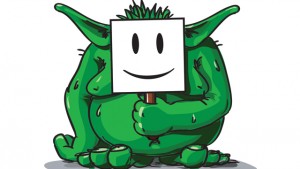
I often come across really inspirational stories of Indigenous communities settling claims to their traditional lands that have been stolen or activist stories of youth who are dedicated to serving the needs and representing the voices of their communities. I am thankful that these stories exist. I enjoy reading them, sharing them with my friends, family and colleagues.
What I am not thankful for though are the comments that lurk afterwards. You know the comments at the bottom of the articles that circulate around about 4 common themes-
“they” are lazy,
“they” get everything for free,
“they” should just get over it
I mean come on this is starting to sound like a broken record…
As a person who works in the area of facilitating difficult conversations around Indigenous issues I thought- Well why not take these comments back. Own them and respond to them. I had thought that these comments could be used as a platform to educate others. I thought that by responding I might be able to share some knowledge that I have learned and also perhaps open the minds of others who continue to take a particular view of Indigenous peoples. I shared this idea with a colleague of mine and he responded by saying, “Don’t feed the troll’s.”
At first I was kind of surprised by the apathy of his response. He said that troll’s are never going to change their minds. That it wasn’t part of the game. After he said that I began to wonder more about trolling behaviour and the relationship that it had to the ignorance I found within the comments section of stories on Indigenous issues.
So what makes a troll tick? Why do they do what they do?
In my search I came across this expose type piece by Paul Jun titled: Don’t Feed the Haters: The Confessions of a Former Troll In this article Jun points out the reason people troll is that they are bored and they want attention. I can kind of see that in your average troll match-off however I think that the issue I am trying to understand has a much more complex nature that goes even beyond the troll psyche. I think that the systemic nature of the comments that I typically encounter goes well beyond the individual and has more to do with societal acceptance of this type of behavior or response to Indigenous peoples. There is a layer within these comments that is specific to Canada and the identities of those who freely express their distain for Indigenous rights and issues in the media.
On November 30th, 2015 the Globe and Mail published an article about the CBC’s recent decision to suspend online comments on Indigenous stories. My first reaction to this was- Oh that is going to make a lot of people angry- including the trolls!!
In a statement around this issue written by Brodie Fenlon CBC’s Acting Director of digital news it further explained that the decision was made as a result of the actions made by some within these spaces. Fenlon went on further to explain that:
We’ve noticed over many months that these stories draw a disproportionate number of comments that cross the line and violate our guidelines. Some of the violations are obvious, some not so obvious; some comments are clearly hateful and vitriolic, some are simply ignorant. And some appear to be hate disguised as ignorance (i.e., racist sentiments expressed in benign language).
This comes at the same time CBC News has made a concerted effort to connect with indigenous communities in order to improve our journalism and better reflect these communities to a national audience. The success of our Aboriginal unit and our investigative journalism around missing and murdered indigenous women are just two examples of that commitment.
After reading about this decision and the actions taken by the CBC I have been thinking more about the concept of solidarity, decolonization and social action. There is an inseparable connection between the way that issues are represented and by whom and also the ongoing relationships that these mediums have with the communities being reported on.
For me I see this decision as a step towards acknowledging the lack of social discourse around respectful engagement and how this is greatly informed not only by the individuals who enter online spaces but also is guided by the acceptance of standards that fall well below what they should be. I feel that this is an action that pushes the pause button so that education and literacy about Indigenous histories, cultures and perspectives have an opportunity to reach broader audiences whether it is through the media, through educational systems or through society more broadly.